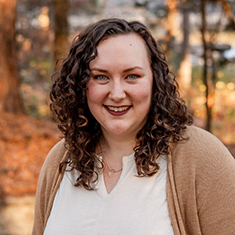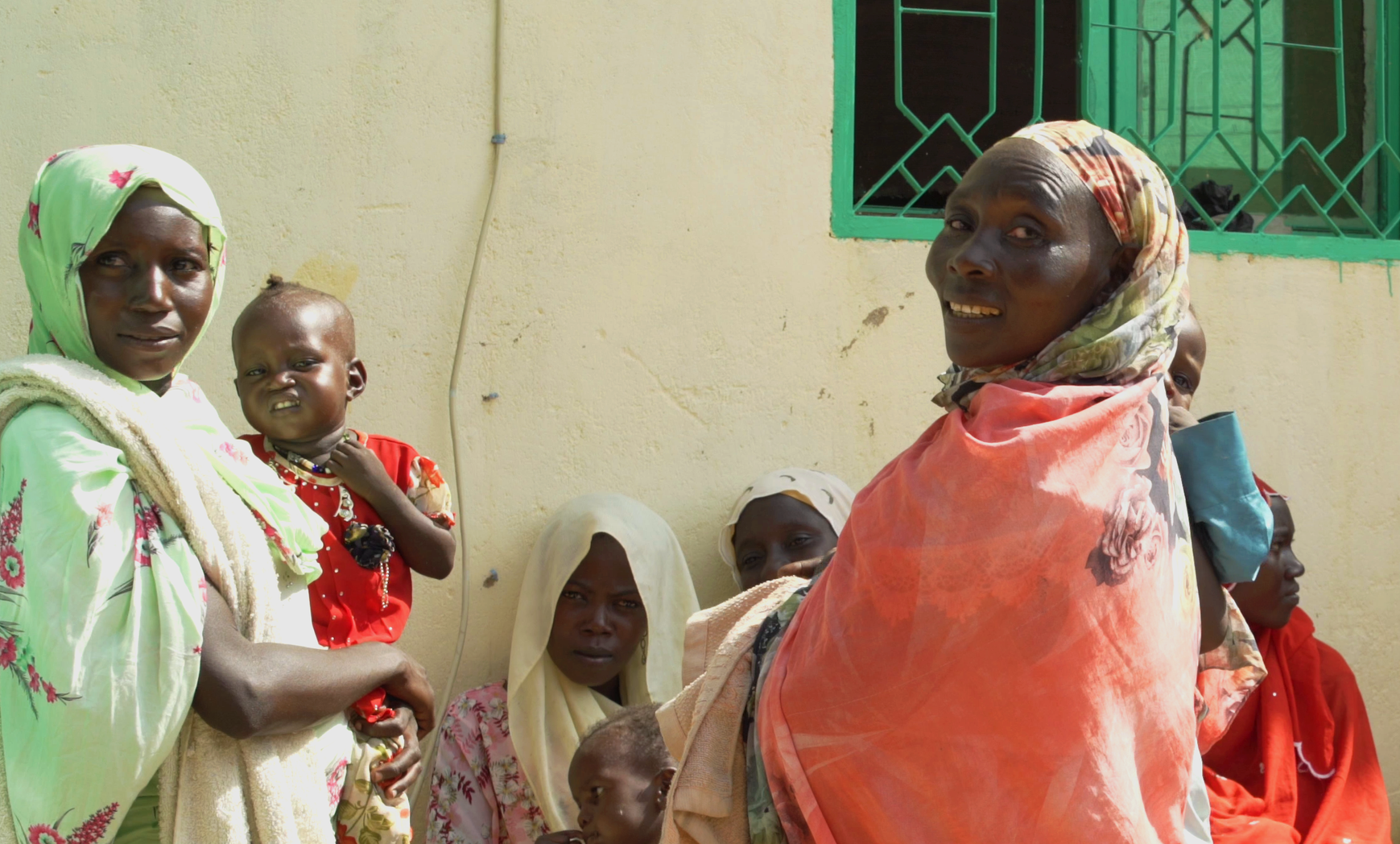One in three women worldwide experience physical and/or sexual violence, most often at the hands of an intimate partner—and the prevalence of gender-based violence (GBV) has only worsened during the COVID-19 pandemic. The health impacts of GBV on women and girls are many and profound. And the effects of GBV are not limited to the immediate targets: children who witness domestic violence are more likely to be victims or perpetrators of violence in the future.
The health sector plays an instrumental role in responding to GBV. Survivors need access to comprehensive health services, including urgent medical treatment, emergency contraception, prophylaxis for HIV and sexually transmitted diseases, mental health care, forensic evidence collection, and legal support. Health care workers are often first responders to GBV-related injuries, and routine screening assures that survivors can get the support they need, including referrals to other essential services. Equally important, health care workers have wide reach into homes and communities and can influence social norms and behavior change to stop the violence.
DAI projects are incorporating health approaches to GBV in programming across a range of sectors, and those approaches are delivering tangible results.
Focusing on Adolescent Girls
Worldwide, the leading cause of death for 15- to 19-year-old girls is pregnancy or childbirth complications. Mothers aged 10–19 face higher risks of eclampsia, puerperal endometritis, and systemic infections than women aged 20–24 years. In working to mitigate GBV, therefore, it is important to tailor strategies and interventions specifically for this younger demographic—enhancing full access to sexual and reproductive health services and rights, and improving the ability (and autonomy) of women and girls to make informed decisions.
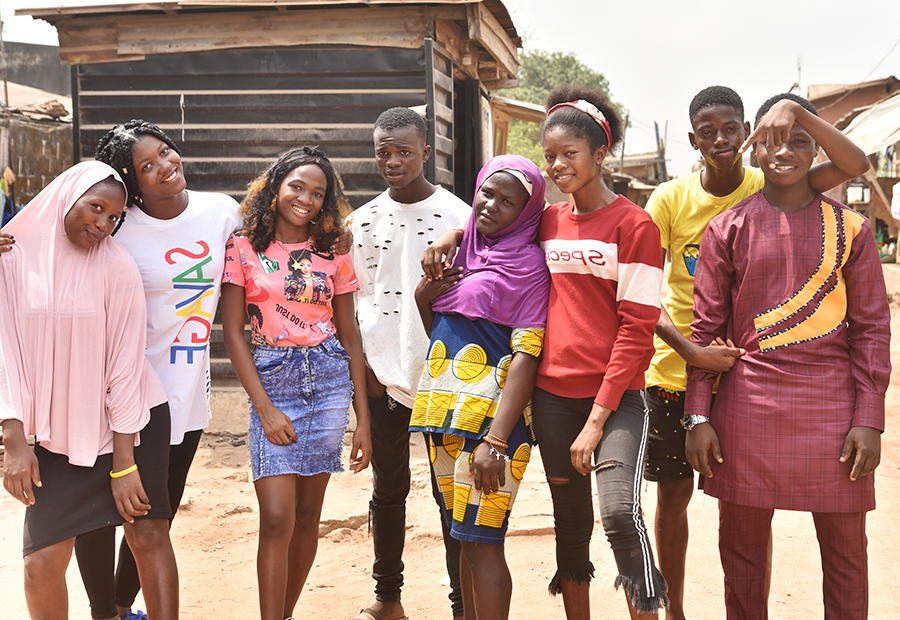
Nigeria has the largest number of child brides in Africa, with more than 23 million girls and women married as children, mostly from poor and rural communities. The U.S. Agency for International Development (USAID) Youth-Powered Ecosystem to Advance Urban Adolescent Health (YPE4AH) program aims to tackle barriers that undermine adolescents’ access to sexual and reproductive health rights, education, and services. The project’s youth centers serve as safe spaces for adolescents to learn leadership and life skills, and seek reproductive health information. These hubs link directly to GBV interventions and public health services across Lagos and Kano states.
Already, in the project’s first year, the GBV work is empowering hundreds of adolescent girls to make their own informed decisions around consent, safety, family planning, sexual health, and reproductive health. Just in the pilot phase, more than 400 youth across the six hubs have enrolled in the reproductive health course, of whom 393 have graduated; 16 healthcare partners have been trained on providing family planning services to adolescents, and are now providing contraception; and more than 100 young people have availed themselves of these contraception services.
Bridging the Justice and Health Sectors
In recent years, Honduras has witnessed alarming rates of femicide, rape, and sexual assault against women and girls. But silos within the country’s health and criminal justice systems make it difficult for women to bring perpetrators to justice. USAID’s Honduras Local Governance (HLG) and Unidos por la Justicia (Unidos) projects facilitated an alliance to deliver more holistic services for GBV survivors in San Pedro Sula and Choloma by highlighting the role of health workers in prosecuting GBV cases. The Special Prosecutor’s Office for Women underscored the importance of medico-legal reports and forensic evidence in bringing GBV perpetrators to justice. Justice officials provided practical guidance on how to strengthen health records and standardize medico-legal reports for GBV cases.

The projects helped establish screening, referral, and response protocols between health and justice officials from San Pedro Sula’s Integrated Criminal Justice Center, the Domestic Violence Court, and the MP’s Special Integrated Service Module. “This was an issue that was invisible in health facilities and now we know there are standards for handling these issues of violence and abuse,” stated Dr. Bessy Rivera, Director of the Las Palmas Health Facility in San Pedro Sula. “These practices will be replicated across the region.”
Mobilizing Safe Motherhood Groups
GBV is a serious problem in Zambia, with damaging social, health, and economic consequences. And despite the Zambian Anti-Gender Based Violence Act of 2011, GBV rates remain high. Under a Zero Tolerance for GBV banner, the More Mobilising Access to Maternal Health Services in Zambia Programme (MORE MAMaZ) integrated a GBV focus into community-based maternal health interventions, focusing on safe pregnancy and delivery. MORE MAMaZ helped front-line health providers understand the nexus between GBV, social exclusion, and low health service use. MORE MAMaZ strengthened the capacity of health providers to identify the least supported women, including those at risk of GBV, and connected them to essential social services.
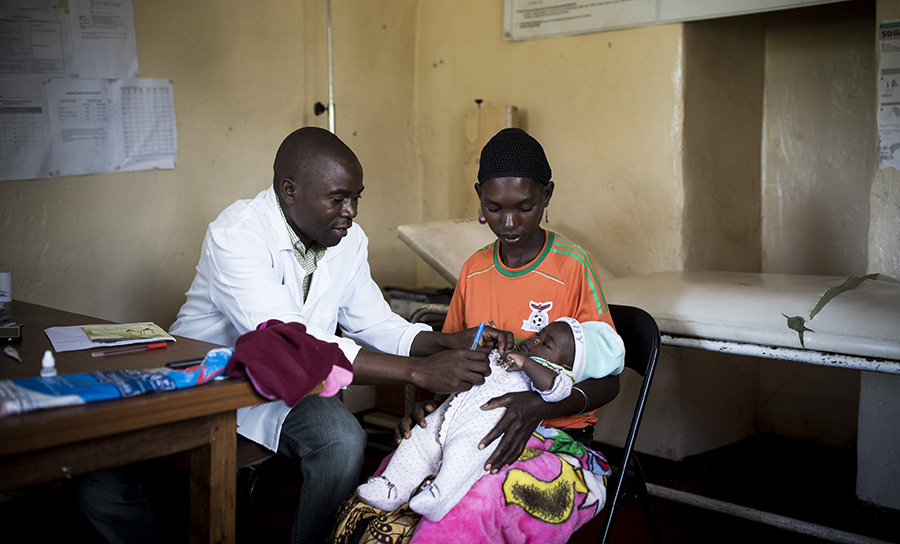
At the community level, specifically, MORE MAMaZ mobilized Safe Motherhood Action Groups (SMAGs), whose volunteers—including male peer educators—worked to shift harmful GBV norms. Former perpetrators of GBV joined in “peer education” efforts to influence others and stop the violence. Traditional leaders also cautioned, fined, or reported perpetrators of GBV.
Overall, the program’s results were impressive, with skilled birth attendance rates rising from 46 percent to 78 percent, the number of women attending antenatal care visits in their first trimester from 37 percent to 62 percent, and the use of modern family planning from 24 percent to 38 percent. But alongside these health impacts, significant reductions in GBV were recorded across communities, and 79 percent of men and women in intervention sites attributed the decline in GBV to the SMAGs, as shifting norms cascaded from the health workers to the wider communities, and then the communities themselves challenged the acceptance of GBV.
Raising Accountability in Health Systems
In Malawi, which ranks 142nd out of 189 countries on the United Nations’ Gender Inequality Index, the European Union-funded Chilungamo (Justice and Accountability) project works to enhance democratic governance and increase access to justice for all, with a particular focus on gender equality. The project supported almost 60,000 victims of GBV, trained 225 police investigators in the collection and preservation of DNA forensic evidence, rehabilitated 10 support units for GBV survivors, and resolved 1,672 cases of GBV through mobile courts.
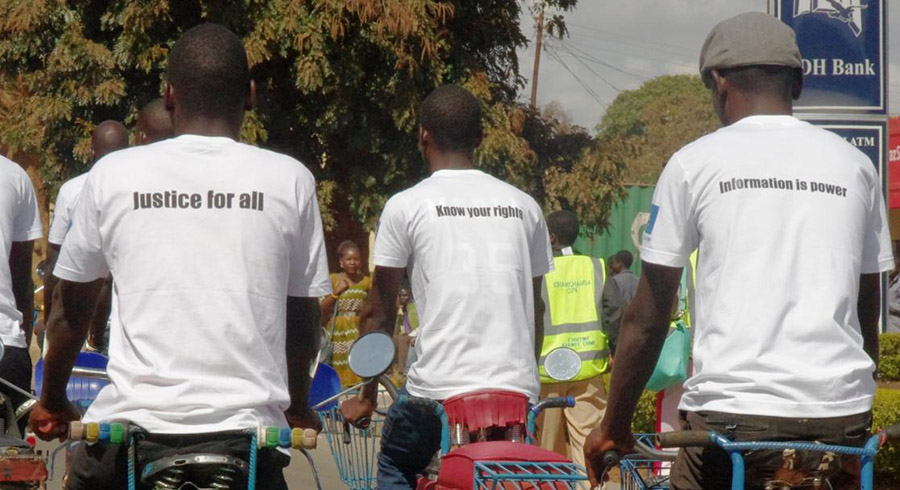
Among its efforts, Chilungamo supported the Malawi Office of the Ombudsman to investigate allegations of pervasive negligence across health facilities, uncovering several instances of sexual abuse, including one high-profile case resulting in the offending doctor being charged, convicted, and now serving more than five years in jail. “This case sent a clear message that sexual violence will not be tolerated in hospitals,” reflected Team Leader Sophie Racine, who said that with some 300 hospital ombudsman across the country, there is now increased public confidence in the reporting system. “Although there is still a long way to go, we witnessed some improvements in health service delivery and greater accountability where there is a hospital ombudsman.”
Jane Kim is a Rule of Law and GBV Specialist.





